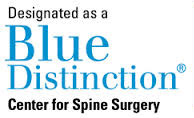Can Neck Pain Cause Dizziness?
 Have you ever experienced neck pain that left you feeling dizzy and disoriented? If so, you’re not alone. Many people find that neck discomfort can lead to unexpected bouts of dizziness. This unsettling combination is more common than you might think and can stem from various underlying causes.
Have you ever experienced neck pain that left you feeling dizzy and disoriented? If so, you’re not alone. Many people find that neck discomfort can lead to unexpected bouts of dizziness. This unsettling combination is more common than you might think and can stem from various underlying causes.
Whether you’re dealing with mild discomfort or chronic issues, understanding this link between neck pain and dizziness is the first step toward better managing your symptoms and improving your quality of life.
Here are a few key reasons why neck pain can cause dizziness:
- Neck Proprioceptors: The neck has many proprioceptors (sensors that provide information about the position and movement of the body to the brain). If these sensors are affected by neck injuries or conditions, they can send incorrect signals to the brain, leading to a sense of disorientation or dizziness.
- Muscular Strain: Severe or chronic neck pain from muscular strain can also affect balance and spatial orientation, contributing to feelings of dizziness.
- Vascular Compression: In some cases, particularly with degenerative changes like cervical spondylosis, the blood vessels (vertebral arteries) that supply blood to the brain might be compressed. This compression can impair blood flow to areas of the brain that are responsible for processing the body’s position and balance, resulting in dizziness.
- Nerve Compression: Issues such as herniated discs or spinal stenosis in the cervical spine can compress nerves that are part of the vestibular system (which helps control balance). The irritation or compression of these nerves can manifest as dizziness.
What should I do if I have neck pain and feel dizzy?
Experiencing neck pain along with dizziness can be uncomfortable and disorienting. Here are some steps you can take to manage and potentially alleviate these symptoms:
- Consult a Healthcare Professional: It’s important to determine the underlying cause of your neck pain and dizziness. Your doctor may recommend imaging tests like an MRI or CT scan to better understand what’s causing your symptoms.
- Physical Therapy: A physical therapist can help you with exercises that improve neck strength and flexibility, which can relieve pain and potentially reduce dizziness if it’s related to muscle tension or cervical alignment issues.
- Medication: Your doctor might prescribe medications to help manage pain and inflammation. If the dizziness is severe, they might also prescribe medication to help with vertigo.
- Posture Correction: Improving your posture can help alleviate neck strain. Be mindful of your posture, especially when using computers or mobile devices. Ergonomic adjustments in your workspace can also be beneficial.
- Relaxation Techniques: Techniques such as yoga, meditation, and deep-breathing exercises can reduce stress and muscle tension in the neck, which might help decrease pain and dizziness.
- Apply Heat or Cold: Using a heating pad or cold packs on your neck can help relieve pain. Heat can reduce muscle stiffness, while cold can help diminish inflammation and numb the sore area.
- Limit Neck Strain: Avoid activities that strain your neck, like lifting heavy objects or sitting for prolonged periods without movement. Take breaks to stretch and adjust your position frequently.
Again, especially if symptoms persist or worsen, it’s important to see your healthcare provider.
